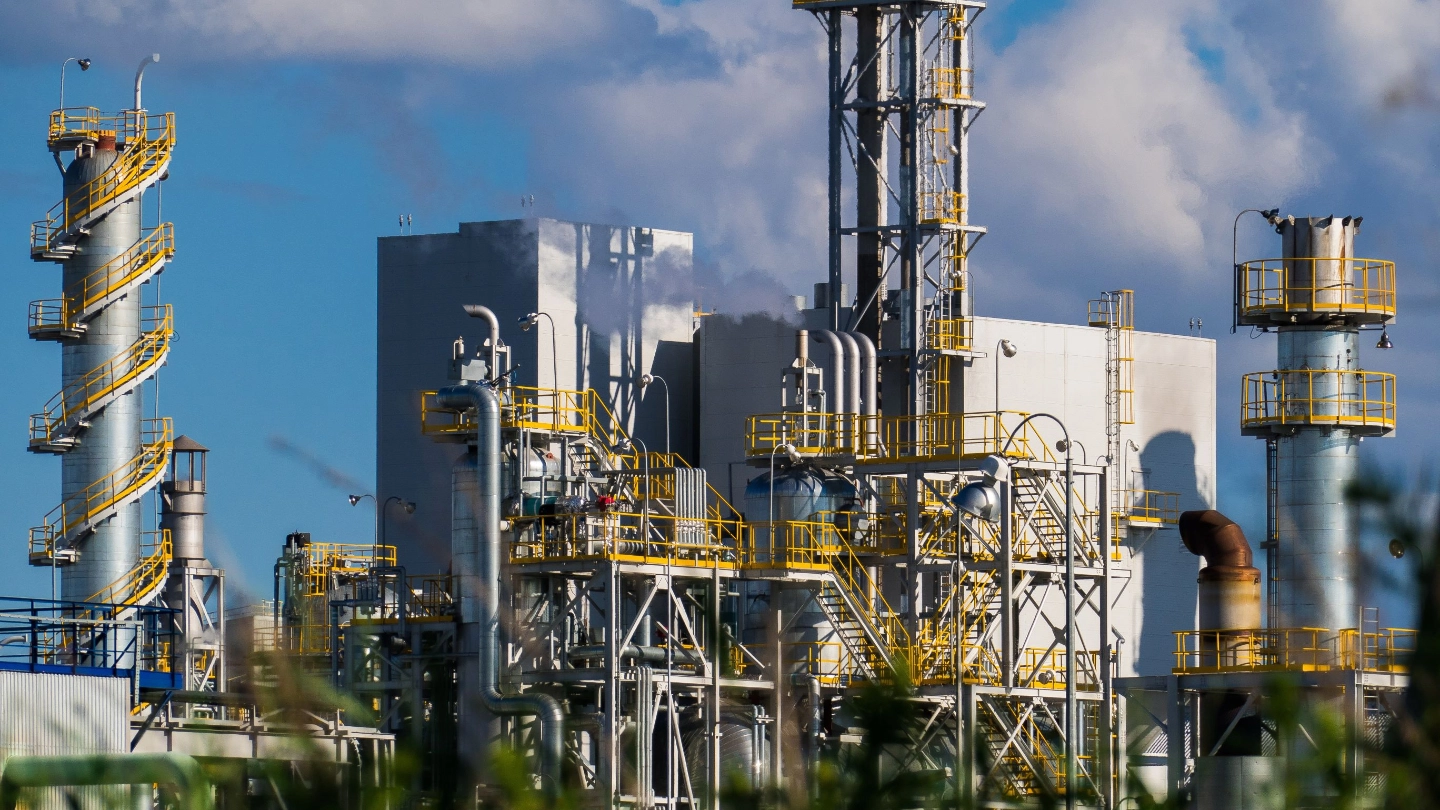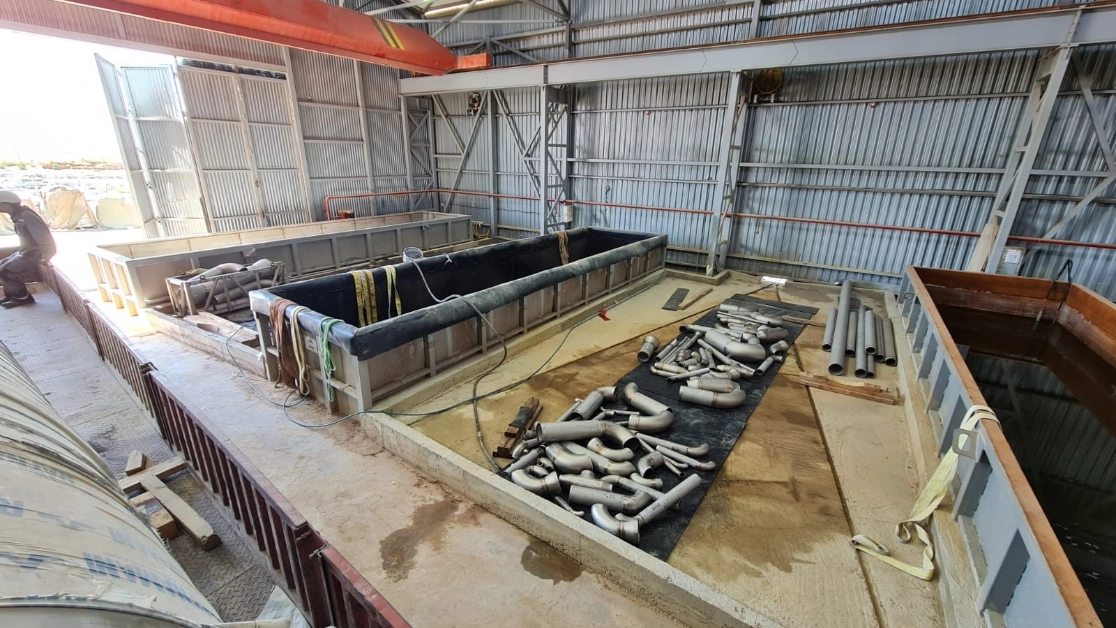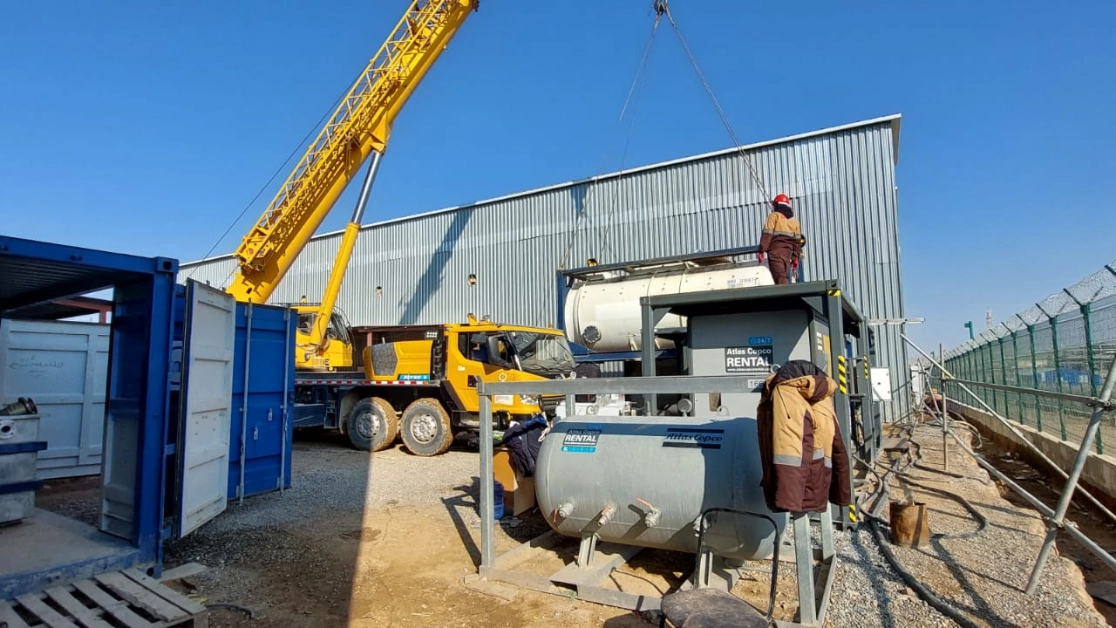
Innovation
The Vecom Group, founded in 1953 and headquartered in Maassluis, began by cleaning tanks and engine rooms, serving mainly the maritime industry. Over time, the company diversified its product range and developed a chemical cleaning division. Eventually, its business activities came to focus on four core market segments.
As of 2025, the latter three activities form the beating heart of the Vecom Group. The chemical production division has been divested, allowing full focus on chemical-technical cleaning, both at Vecom’s own facilities and on-site worldwide, as well as on waste stream processing.
The Vecom Group comprises four companies with a total of around 80 employees, operating pickling plants in Ranst (Belgium), Bury (United Kingdom), Maassluis, and Enschede. These sites specialize in pickling and passivation of stainless steel components for the regional manufacturing industry. One of the group’s companies, Vecom Industrial Services, is globally active in on-site cleaning of process installations.
This internationally active division has built a solid reputation, focusing on chemical-technical cleaning of projects across sectors such as natural gas, fertilizer, plastics, pharmaceuticals, steel, oleochemistry, refining, petrochemicals, paper, coatings, food, water treatment, shipbuilding, and energy production.
Chemical-Technical Cleaning
Chemical-technical cleaning requires equipment resistant to corrosive substances, such as pumps, hoses, and other fittings capable of withstanding the mixture of chemicals that flow through contaminated installations and components. Over time, these materials can become fouled, and the diameter of pipes may narrow due to built-up deposits, reducing system performance and output. In such cases, thorough cleaning is essential.
For each project, Vecom prepares a detailed equipment list specifying what is needed for that particular site, contamination type, and operating conditions. These materials are shipped by sea or road in one or more containers to the project location. This is done under temporary import, with the exception of chemicals, which are permanently imported into the country of operation since they are consumed during the cleaning process.
Each cleaning project consists of three phases: setup of the installation, execution of the cleaning process, and dismantling of the system. Each phase takes approximately one week. The process generates wastewater containing chemicals and residues from the pipelines, which is disposed of locally by the client.
Vecom Group is a Dutch specialist in chemical-technical cleaning for industries such as fertilisers, petrochemicals, and energy. The company works worldwide on cleaning process installations and operates its own facilities in the Netherlands, Belgium, and the United Kingdom. A recent project is the periodic cleaning of Qatar Fertiliser Company, which delivers significant efficiency gains. For international projects, Vecom protects its valuable equipment with insurance from Atradius Dutch State Business. Demand for their services is increasing, especially in the MENA region, due to ageing industrial installations.

Stainless Steel Cleaning – Fertilizer Plant in Qatar
One of the sectors facing pipe fouling is the fertilizer industry. Fertilizer production is energy-intensive and environmentally taxing due to ammonia emissions released during the process. Therefore, these plants are typically located in less densely populated regions, where energy prices have historically been low. However, as energy costs have shifted, the sector has shown growing interest in chemical-technical cleaning to improve efficiency.
In recent years, Vecom has completed projects in Hungary and Egypt, successfully removing 80–90% of the deposits that had built up over decades, using specialized cleaning techniques. The results included improved heat transfer, reduced energy consumption, and increased production output.
At the Qatar Fertiliser Company (QAFCO) plant in Mesaieed, Vecom will perform chemical cleaning of the on-site installations, supplying both chemical agents and cleaning equipment. These periodic cleanings result in significant efficiency gains for the facility.
“We also like to insure our increasing container shipments to the Middle East—traveling through the Red Sea, the Gulf of Aden, and the Strait of Hormuz—under a machinery insurance policy.”
The equipment that is temporarily imported at the final destination is worth many hundreds of thousands of euros. Because Vecom often visits countries where different norms and values apply (and certainly at customs!), we are only too happy to insure our valuable property through Atradius tool insur

Future
Vecom's customers are all over the world and return with some regularity. They often have a so-called maintenance calendar, so that shutdowns can be planned for cleaning.
"As attractive as that may seem, in the turbulent world we live in, we prefer to use a somewhat shorter horizon. In our workload, we currently have a number of projects with the same clients that need to be carried out in 2025, 2026 and 2027. That is still an acceptable risk where you can reasonably hedge various costs against extreme increases."
As mentioned, the developments in the Middle East and North Africa are nothing short of spectacular. Many dozens of installations that produce fertilizer are now quite outdated. Traditional high-pressure cleaning is no longer sufficient, so it is necessary to switch to chemical technical cleaning in order to extend the life of the installations, drastically reduce energy consumption and significantly increase output. Several follow-up orders in Egypt and Qatar have already been booked. In addition, negotiations are ongoing in the United Arab Emirates and Algeria, among others. These countries seem to be making promising additions to the order book for the coming years.
Contact
Would you like to know more about how Atradius Dutch State Business products can support the growth of your business?
Check out our product page here for more information.

